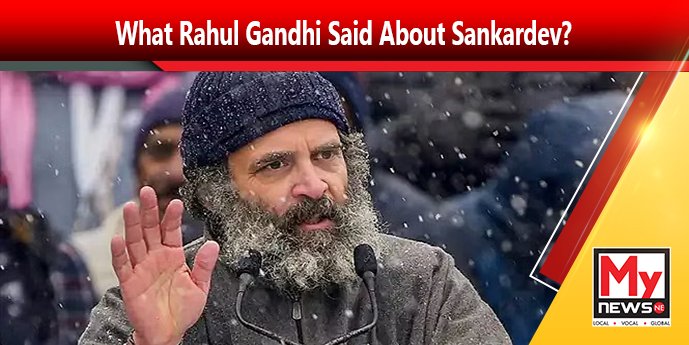What Rahul Gandhi Said About Assam Saint Sankardev?
Guwahati: Former leader of the Indian National Congress (INC) Rahul Gandhi mentioned the Assamese polymath Srimanta Sankardev during his address on Monday as the Bharat Jodo Yatra campaign came to a conclusion amid snowfall in Srinagar, Jammu and Kashmir.
Rahul Gandhi was speaking to a crowd while it was snowing heavily, and when he spoke “Kashmiriyat,” he mentioned Sankardev. He said that a united society had been preached about by the great saint-scholar from Assam.
Gandhi said, “In Assam, Sankardev had said that people should be united and not attack others, but instead be critics of their own selves.”
The Congress leader made the remark while discussing how people in Jammu and Kashmir adopted the “Kashmiriyat” philosophy, which is also practised in other parts of India. Gandhi afterwards came to think of Kashmir as his home.
Rahul Gandhi explained the meaning of the phrase “Kashmiriyat” by stating that if we try to grasp Lord Shiva’s sayings, we would run into the term “zero,” which may be interpreted as self-criticism and reflection on one’s ego and thought process. A similar idea surrounding the term “fanna” circulates in Islam and aims to combat one’s negative thoughts and emotions in order to become a better version of oneself.
“Both zero and fanna are the same. This goes to show the deep rooted relation that has existed for ages, which is known as Kashmiriyat here,” said Gandhi.
The Congress representative continued by citing analogous instances from other states to demonstrate that the mindset is shared throughout India and that there is no need to foster differences among us. Instead, we should all strive to live in an one society and contribute to nation-building. He also made reference to Mahatma Gandhi’s proverb “Vaishnav Jan To,” which he said meant “zero” or “fanna.”
It should be remembered that Srimanta Sankardev lived in Assam between the 15th and 16th centuries and was a saint-scholar. With his contributions to the realms of music, dance, painting, etc., he is recognised with preserving the culture and forming the modern Assamese society. He was a Neo-Vaishnavite preacher who advocated for social and religious change.

